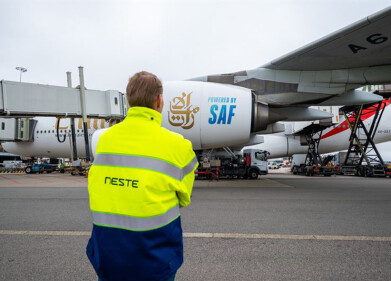Fuel for Thought
How Are the Low Oil Prices Affecting the Great British Pound?
May 18 2015
The steadily declining oil prices which have been in free fall for over a year have hit countries which rely heavily upon oil exports the hardest. The Canadian dollar and the Norwegian krone in particular are two monies which have affected by the oil price crash to a greater extent than many others.
But what about pounds sterling? How has the currency of the UK fared in comparison to others?
The Importance of the Oil Industry to the UK Economy
Though the UK does not rely as heavily on oil and gas for its economic performance as the countries listed above, the industry still contributes a fair portion. Industry body Oil and Gas UK released a report for the fiscal year 2012-13, showing that the sector is valuable to the British economy to the tune of about £35 billion annually.
The industry contributed £6.5 billion in taxes and received £14.4 billion in investment, as well as providing more than 450,000 jobs across 3,000 companies. Clearly, the oil and gas industry is important to the British economy, and with exports of crude oil currently exceeding imports, the Great British pound is bound to suffer in some capacity.
The Pound in Comparison to the Euro
The euro generally benefits from high oil prices through more indirect means. The diversification of petrodollars from the United States to Europe helps the euro stay strong, so falling oil prices will affect them, too.
However, on the whole, European Union members are not net oil exporters, meaning that they are not as affected as the UK. In the short term, this means that the currencies could move closer together, with the euro putting pressure on the pound. However, long-term difficulties in European economies mean that over time, the pound is likely to retain its advantage.
“The euro area’s difficult economic situation and increased signs of market unease suggest that the distribution of risks now may be even more skewed towards lower EUR exchange rates,” explained Barclays bank, who predicted against a long-term rise in the strength of the euro.
How to Revive the Oil Prices
Since a surplus of supply and a scarcity of demand (among other reasons) are the cause of the oil price crash, the prices should eventually rise again when either of these resolves itself.
On the one hand, a growing preoccupation with cleaner, more renewable energy has led to investment in solar, wind and wave power, as well as such technologies as biodiesel and biogas. If interest in fossil fuels drops, production will waver and prices should return to normal.
On the other hand, the newly-elected government appears to see shale gas as a solution to our energy needs, as the US initially did. Similar levels of investment in the practice in the UK as in America would lead to more surplus production at greater costs, thus keeping prices down. However, such practices would be financially unstable in the long term and so too would drop off, meaning that the prices stabilise again.
Digital Edition
PIN 25.1 Feb/March
March 2024
In This Edition Safety - The technology behind the ION Science Tiger XT - Safety with ammonia and LOHCs as hydrogen carriers Analytical Instrumentation - Discussion on new tribology te...
View all digital editions
Events
Apr 24 2024 Mumbai, India
Apr 24 2024 Jakarta, Indonesia
Apr 28 2024 Montreal, Quebec, Canada
Apr 30 2024 Birmingham, UK
May 03 2024 Seoul, South Korea


















